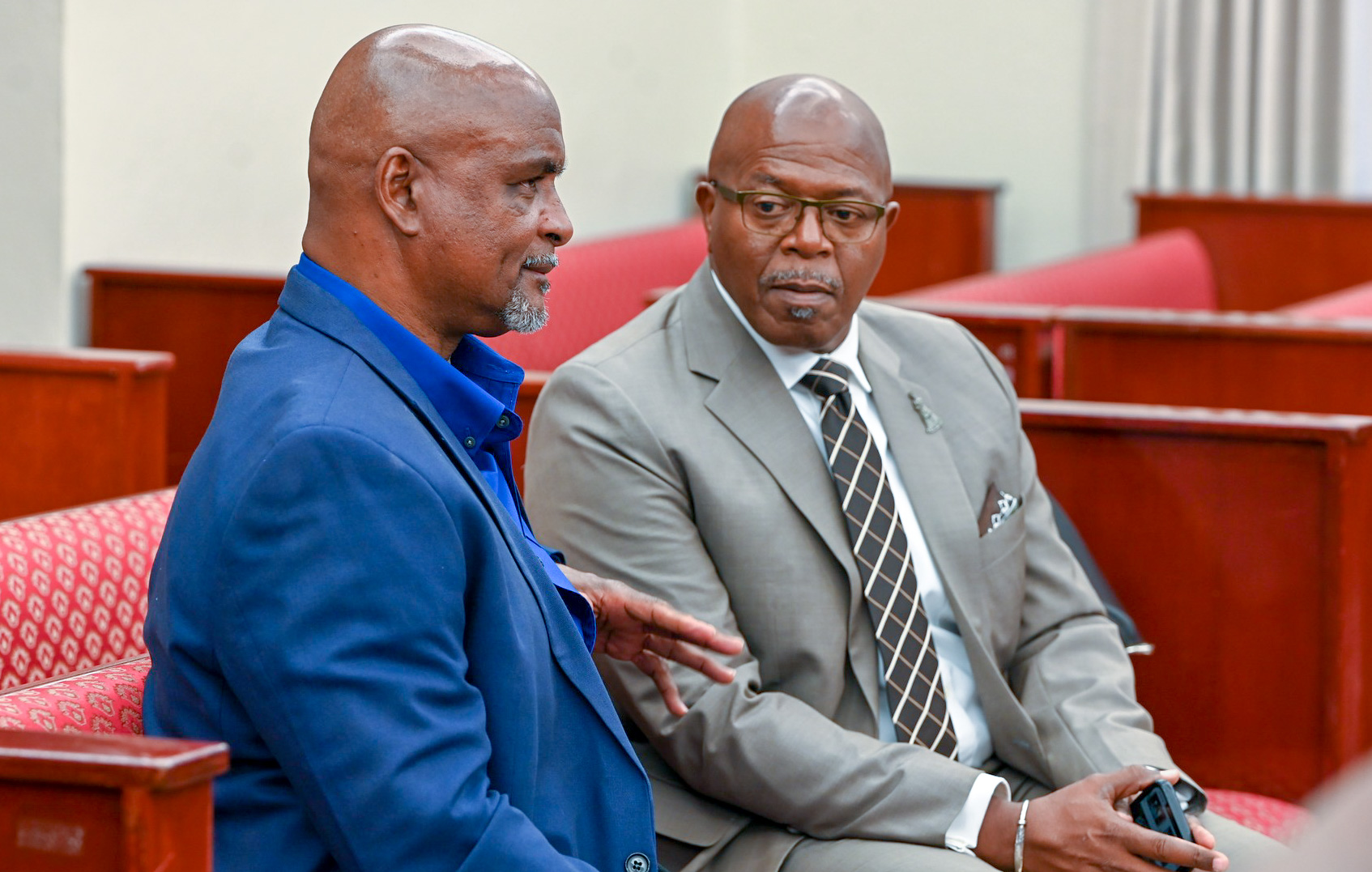
Former Sen. Myron Jackson, urging senators to make Juneteenth an official territory holiday, emphasized the role in the civil rights struggle Virgin Islanders have played.
He testified at the Committee on Government Operations, Veterans Affairs, and Consumer Protection hearing Tuesday on legislation to declare June 19 a legal holiday in the Virgin Islands, to be called Juneteenth National Independence Day.
The holiday would commemorate June 19, 1865, when 2,000 Union troops arrived in Galveston Bay, Texas, and announced that the 250,000 enslaved African Americans in the state were free by executive order. On June 17, 2021, President Joe Biden signed legislation officially declaring it a federal holiday. The holiday had been recognized in most states before that declaration.
The arrival of the troops in Galveston was two years after President Abraham Lincoln’s Emancipation Proclamation, declaring freedom for the enslaved of the United States, and 17 years after Emancipation in the Virgin Islands, then known as the Danish West Indies.
Many Afro-Americans consider June 19th their Independence Day. July 4th commemorates a day when slavery was still legal.
Jackson noted that the holiday has had many names including National Independence Day, Jubilee Day, Emancipation Day, Freedom Day, and Black Independence Day.
Cindy Richardson, director of Personnel, wrote a letter to the committee and said her department supported the legislation, which members forwarded to the Rules and Judiciary Committee with a favorable recommendation. She wrote, “Our support is in tandem with the Bryan/Roach administration that is moving towards embracing the true history of our nation.”
Jackson testified, “For hundreds of years, the people of our islands, now known as the Virgin Islands of the United States, have been at the forefront of movements for liberation, emancipation, equality, civil rights, and self-determination across the African Diaspora. This year, we will officially observe and celebrate the significant milestone of the 175th anniversary of the Emancipation of our enslaved African ancestors from bondage and chattel slavery.”
Sen. Alma Francis Heyliger said she agreed with the proposed legislation, but she had heard from constituents that the “government already has too many holidays.”
She asked if there could be some kind of balance discussed to implement this holiday and address the comments that there were already too many holidays.
Sen. Marvin Blyden, who introduced the measure, said his attention was drawn to the need to make it a territorial holiday by a government worker who told him government workers were not paid overtime or holiday pay when they worked on Juneteenth. He asked, “Why are Black people’s holidays second-class holidays?”
Jackson started his historical narrative, which placed Virgin Islanders in the middle of the struggle for freedom with Denmark Vesey. Vesey, an enslaved African, was born on St. Thomas, Danish West Indies in 1767. Vesep migrated with his owner to South Carolina, where he became a master carpenter and obtained his freedom. According to Jackson, Vesey is alleged to have planned an insurrection, to coincide with Bastille Day, in Charleston in 1822, molded after the successful revolution of the enslaved in 1791 in Haiti. As someone born in the Danish West Indies, Jackson said Vesey would have known of the 1733 African Revolution on St. John.
Jackson also talked about Edward Wilmot Blyden, educator, theologian, historian, writer, author, community activist, and diplomat, born in 1832 to free African parents on St. Thomas.
Jackson testified that Blyden was recognized as the father of Pan-Africanism. In 1850, he migrated, with the assistance of the Dutch Reform congregation and the St. Thomas community, to New York City for seminary college, but was denied entry because of his race. Blyden then joined the waves of people of African descent in the 19th century from the United States and the Caribbean who returned to Liberia and Sierra Leone.
Senate President Novelle Francis, a non-committee member attending, questioned how the holiday could help engage students with their heritage.
Jackson then talked about the V.I. Cultural Heritage Institute. He said the Institute had gone “dormant” since it was transferred to the Department of Tourism from the Department of Planning and Natural Resources. He said the plan was that Tourism would tie cultural themes to the territory’s festivals but that has not happened. He said it would be good if the territory had an office dedicated to its museums, libraries, archives, and archaeology.


